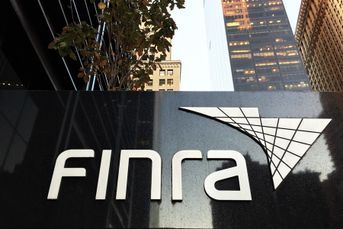SEC to offer guidelines on best trade executions
Federal regulators are expected shortly to recommend guidelines directing how investment advisers and money managers should trade stocks.
Federal regulators are expected shortly to recommend guidelines directing how investment advisers and money managers should trade stocks.
“The basic issue is that the investment advisers will need to pay attention to how they place their customer orders,” says Gene Gohlke, an associate director at the Securities and Exchange Commission.
“As a fiduciary, they need to do it,” adds Mr. Gohlke, who works in the SEC’s office of compliance, inspections and examinations, which has been studying the issue.
The SEC report could be released as early as this summer, and it will include recommendations to money managers on how to place orders.
Over the past few years, the SEC has looked closely at how broker-dealers work toward best execution of customer orders.
Now regulators are focusing on money managers.
relevant factors
When it comes to best execution, Mr. Gohlke says, investment advisers need to think about using electronic communications networks, justifying the price of a trade and forming a best-execution committee.
“There’s no secret formula,” he says. “There’s no single quantitative approach. Advisers must consider all relevant factors, including costs, to determine if clients are getting the best trades.”
Among the SEC’s concerns are the potential for conflicts of interest and whether money managers are doing all they can to get the best execution on their trades.
“The SEC has a problem when clients haven’t specified where trades should go, and an investment manager executes trades through its own broker’s desk,” says Bill Rankin, president and chief executive of Stein Roe Investment Counsel LLC in Chicago, which manages $9 billion.
Some money managers trade through their own broker-dealer affiliates, without determining whether that is the best route to go to get the best execution.
dilemmas
Best execution encompasses a range of issues other than the price of a trade, observers say.
They include the speed of a trade, investor anonymity and the value of additional services such as research.
The SEC has wanted to look at best execution with investment advisers since it examined the practice of soft-dollar payments in 1998.
For that report, the SEC found that broker-dealers often charged a commission of 5 or 6 cents per share of stock, while an alternative trading system such as an ECN charged 1 or 2 cents per share.
Investment advisers commonly use a variety of broker-dealers or alternative trading systems, Mr. Gohlke says.
The new report will look at dilemmas that investment advisers face in the market.
He gives the example of a manager who wanted to buy a million shares of a Nasdaq-listed stock such as Microsoft. A trade could be done on an ECN for 1 or 2 cents per share, he says.
But it’s unlikely that the money manager would be able to find a limit order through an ECN, and a market order would probably affect the price.
costly decision
“So the adviser goes to the traditional broker-dealer that would do it for the greater price, but without the impact on the market,” Mr. Gohlke explains.
“I’ve heard situations where clients might save a penny or two on commission costs but have a 25-cent payment in market impact,” he says.
An adviser has to have a systematic and periodic evaluation of its best-execution policies, he says.
Mr. Gohlke says that companies will have to come up with a plan for seeking best execution.
“Advisers need to have an evaluation process. For the larger firms, it might make sense to have a group or a committee to make sure this gets carried out.”
The SEC started to interview companies at the beginning of last year.
While declining to say how many registered investment advisers or money managers his office interviewed to prepare the report, Mr. Gohlke adds that the money managers varied in size, with the smallest of them having about $500 million in assets.
Learn more about reprints and licensing for this article.








